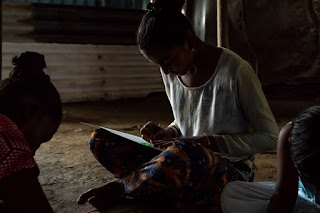Rights of Children in India
Rights-The reason of all the revolutions the world has witnessed so far. But what are Rights? The fact that I am writing this, and that you will ponder upon the same, is our Right to freedom of Thought and Expression. Rights therefore, are indispensable and inalienable by nature. Rights are not privileges. They are something that every individual is born with, and cannot be hampered or infringed upon by another, as long as they are exercised in social harmony.
However,
despite the inalienability of Rights, the weaker sections (Women, Children,
Scheduled Castes, and Scheduled Tribes) of society remain disadvantaged, and
deprived of their basic rights, due to Inequality, prevalence of social evils,
and Unawareness.
This
article intends to throw some light on the Rights of Children in India,
and the lack of awareness regarding the same that prevails in our society, the
adverse impact that it creates on the life of children, and the legal –
remedial measures that exist.
Who Is A
Child?
The
United Nations Convention on Rights of the Child, 1989 defines Child as any
human being below the age of eighteen years, unless under the law applicable to
the child, majority is attained earlier.
The above
definition brings into picture a number of factors that make children one of
the most vulnerable sections of our society.
A child
is in a continuous phase of growth and development, and hence remains dependent
on another for even the basic needs of livelihood such as food, clothing,
shelter, education, and so much more. This constant requirement of help,
support, and protection, the lack of availability of the same, puts a child to
many chronic risks, leaving their whole existence at stake. There is an
alarming need of educating the masses about Child Rights, and creating awareness
about how fundamental they are for the overall development of a child.
The
Menace of Child Labour
Article
24 of Indian Constitution strictly prohibits the practice of any form of Child Labour. It states: No child below the age of fourteen
years shall be employed, to work in any factory or mine or engaged in any
hazardous employment. However, even in the
light of pursuance of legal statues such as The Factories Act 1948, The Mines
Act of 1952, The Child Labour (Prohibition and Regulation) Act 1986 and the
following amendments, Child labour is been widely prevalent in India.



Comments
Post a Comment